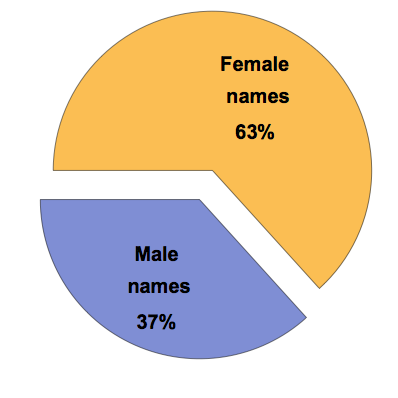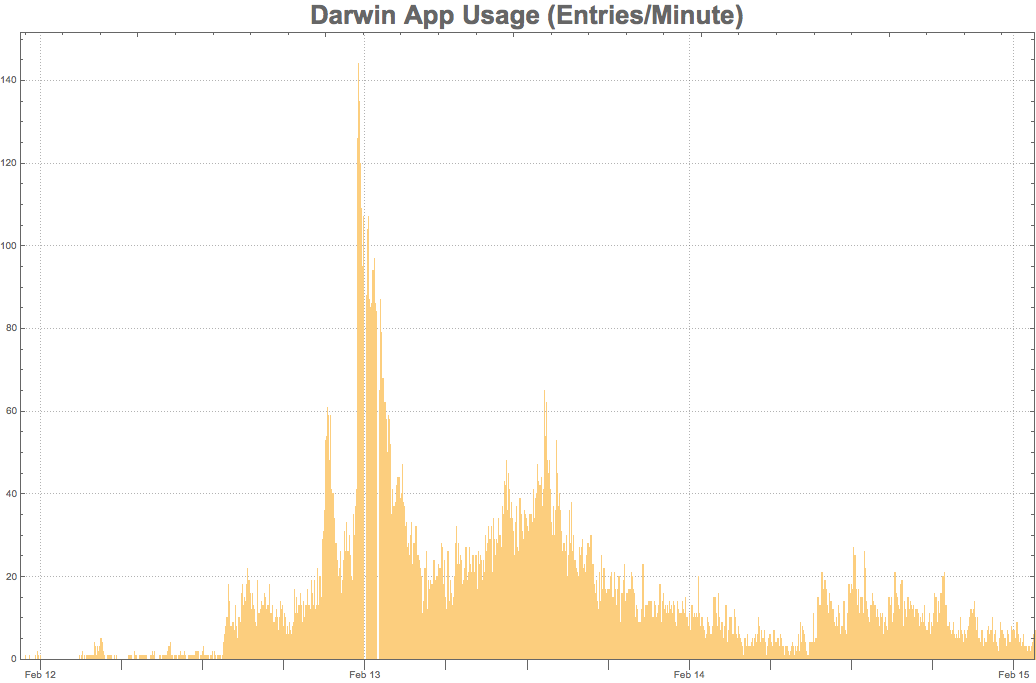Cool! Thanks!
The App went viral over the weekend, especially on Tumblr. So, I thought it will be interesting to share some results.
I created a Databin in order to store all the entries of the App and track its usage easily. During the last 3 days the App gathered more than 53000 names. In the list there are many "Darwin" entries because it is the default input of the App. We can get rid of them using DeleteCases:
bin = Databin["binID"];
names = DeleteCases[Flatten[TextWords[ToLowerCase[Values[bin]]]], "darwin"];
Now we can visualize the most popular names with the WordCloud function:
WordCloud[names]

It is easy to guess that the female names are more abundant. And we can check this in a quantitative way using Classify with the "NameGender" built-in classifier:
WordCloud[names, ColorFunction -> (If[Classify["NameGender", #2] === "Female", Orange,Purple] &)]

We can also visualize the percentages with a PieChart:
genderProb = Classify["NameGender", names, "TopProbabilities"];
PieChart[100 N[Values[genderCounts]/Total[Values[genderCounts]]],
ChartLabels -> {Style["Female names", Bold, FontSize -> 20],
Style["Male names", Bold, FontSize -> 20]}]

From the Databin we can also get the "TimeStamps" and easily visualize the usage over time in Entries/Minute units with DateHistogram:
t = Databin["binID"]["Timestamps"];
DateHistogram[t, "Minute", PlotTheme -> "Detailed", TimeZone -> -5,
PlotRange -> {{{2016, 2, 12}, {2016, 2, 15}}, Automatic},
PlotLabel -> Style["Darwin App Usage (Entries/Minute)", Bold, FontSize -> 26]]

In the near future I will try to analyze the the Species associated with theses person names. In fact, many people were surprised to get mostly insects and spiders. But as a remark, note that mammals only account for 5,416 species out of more than 1 Million.